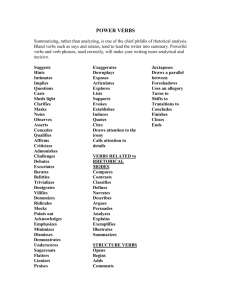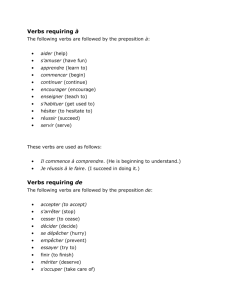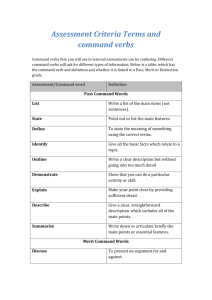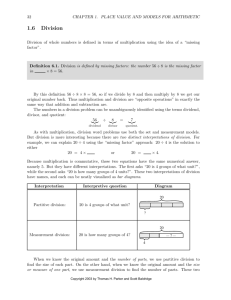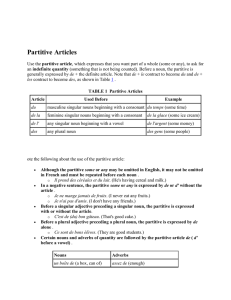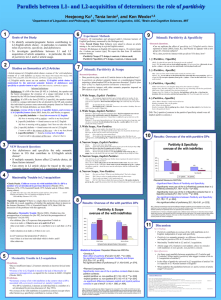Professor Jack Hoeksema
advertisement
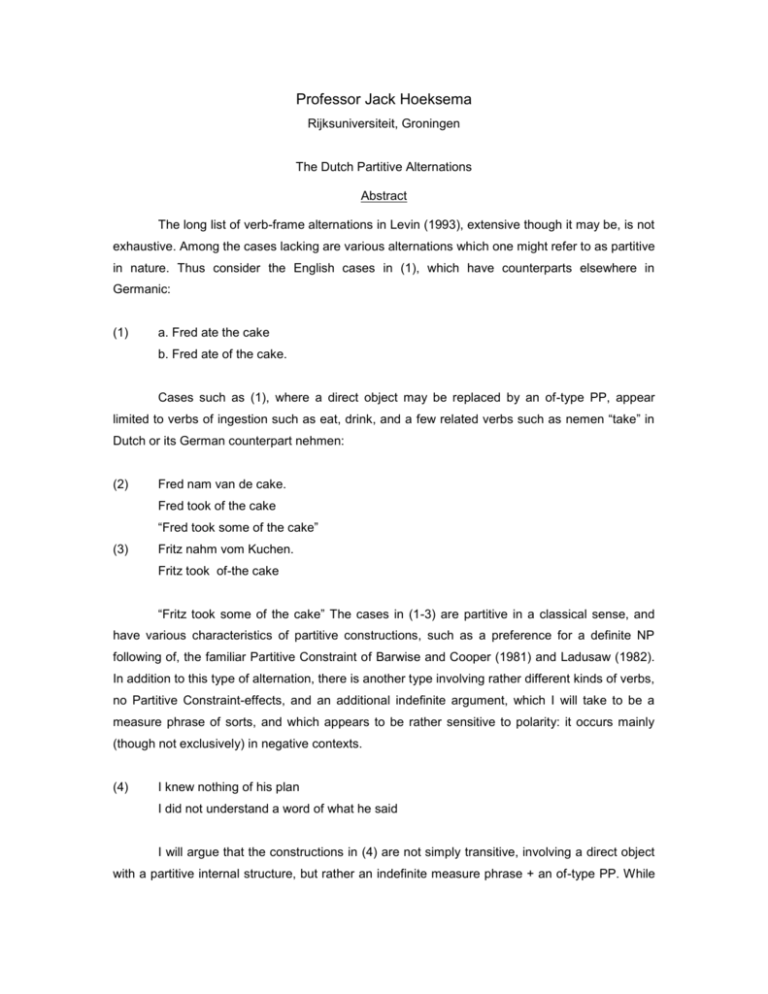
Professor Jack Hoeksema Rijksuniversiteit, Groningen The Dutch Partitive Alternations Abstract The long list of verb-frame alternations in Levin (1993), extensive though it may be, is not exhaustive. Among the cases lacking are various alternations which one might refer to as partitive in nature. Thus consider the English cases in (1), which have counterparts elsewhere in Germanic: (1) a. Fred ate the cake b. Fred ate of the cake. Cases such as (1), where a direct object may be replaced by an of-type PP, appear limited to verbs of ingestion such as eat, drink, and a few related verbs such as nemen “take” in Dutch or its German counterpart nehmen: (2) Fred nam van de cake. Fred took of the cake “Fred took some of the cake” (3) Fritz nahm vom Kuchen. Fritz took of-the cake “Fritz took some of the cake” The cases in (1-3) are partitive in a classical sense, and have various characteristics of partitive constructions, such as a preference for a definite NP following of, the familiar Partitive Constraint of Barwise and Cooper (1981) and Ladusaw (1982). In addition to this type of alternation, there is another type involving rather different kinds of verbs, no Partitive Constraint-effects, and an additional indefinite argument, which I will take to be a measure phrase of sorts, and which appears to be rather sensitive to polarity: it occurs mainly (though not exclusively) in negative contexts. (4) I knew nothing of his plan I did not understand a word of what he said I will argue that the constructions in (4) are not simply transitive, involving a direct object with a partitive internal structure, but rather an indefinite measure phrase + an of-type PP. While the construction exemplified in (4) is rather limited in English, it is more widespread in German and especially common in Dutch, cf: (4) Daar begrijp ik niets van. there understand I nothing of “I don’t understand any of it; I don’t understand it at all” (5) Daar deugt niets van. there OK nothing of “None of it is OK = it is all wrong” I will provide an analysis in which the indefinite elements function as measure phrases binding a degree variable, in order to account for the option of translating these sentences into equivalent structures involving adverbs of degree, cf. the English translations of the above examples. Hence a general requirement for verbs in this partitive-like construction is that they allow for grading (this means that verbs such as understand are possible candidates for the alternation, but verbs like say are not, since one can understand but cannot say something to varying degrees. Using a set of about 2000 naturally occurring examples, the polarity sensitivity of the construction will be illustrated, and the semantic groups of verbs that engage in the alternation are delimited. As in the case of other alternations, there are several semantically defined groups of verbs, making it impossible to provide a general characterization in terms of necessary and sufficient lexical-semantic properties. However, within smaller groups, we see strong family resemblances among the verbs involved. There are also several adjectives and verbal idioms engaging in the alternation. I also discuss a closely related alternation involving the preposition aan “on, to”, as well as cases where the measure phrase is not obligatory. I argue that measure phrases are not direct objects or subjects. If correct, this means that the set of subjectless sentences in Dutch is larger than often assumed. This has various consequences, for instance for passive partitive constructions, e.g. Daar is geen woord aan gelogen “there is not a word to lied = that is the full truth” which have no active counterparts.





